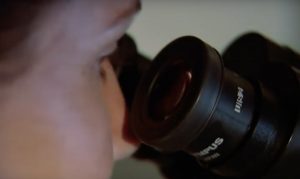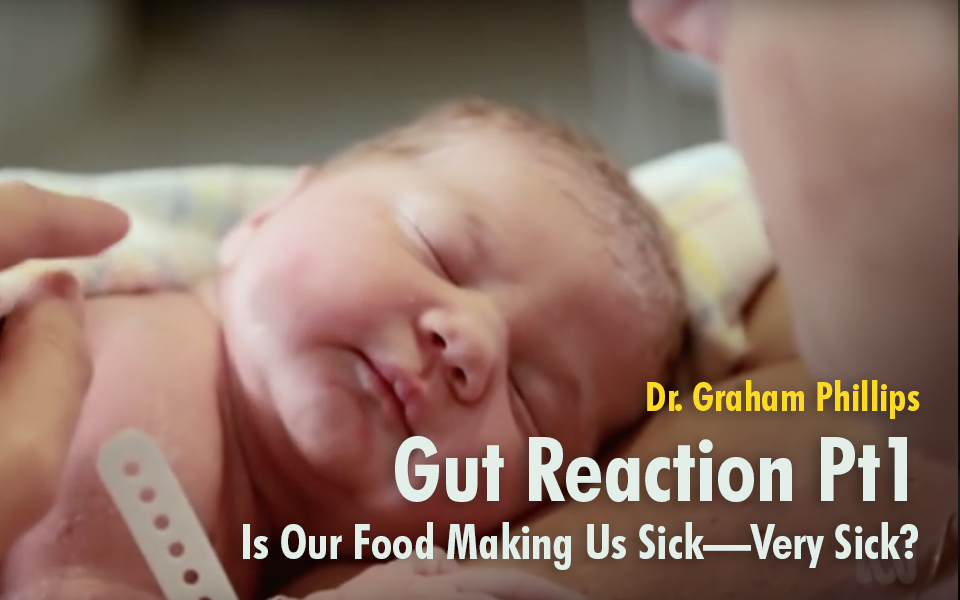Gut Reaction: Is Our Food Making Us Sick—Very Sick?
In the first of this two-part special, Dr Graham Phillips reveals new research about the interplay between food and the bacteria deep within our guts.
Video Excerpts:
Professor Charles Mackay
I really think we’re encountering a revolution. Maybe we can prevent diseases by simply changing our diet.
NARRATION
The remarkable new discoveries are telling us that our current eating habits could be making us sick. Very sick. Indeed, our food might be contributing to heart disease, cancer, asthma, allergies, arthritis, autism, depression, multiple sclerosis, diabetes – the list goes on.
Dr Graham Phillips
Now, we’ve been hearing for years how we should be eating healthy food. But this research is different. It’s all about the bacteria that live in our intestines. Eat good food, you end up with good bacteria. Eat badly and you get bad bacteria in your gut. Now, it turns out your gut bugs have an enormous influence on your health.
Professor Charles Mackay
I think you can extend your life span by years, if not decades, with a healthy diet. And all the evidence is pointing to that.
Professor Rob Knight
If you were vaginally delivered, the microbes that you’re coated in initially mostly come from your mother’s vaginal community.
 Professor Rob Knight
Professor Rob Knight
Breast milk contains a lot of sugars that the baby can’t metabolize, but they’re important for promoting the growth of particular kinds of bacteria in the gut that are good. Also there’s increasing evidence that the milk itself is produced with bacteria in it.
Professor Sarkis K Mazmanian
Children that were breastfed are likely more protected against allergy and asthma than children who were fed formula. And I think these principles… though there isn’t direct evidence, I think these principles can extend beyond just allergies to autoimmunity, to neurological disorders and perhaps several other indications that we don’t yet understand.
Professor Sarkis K Mazmanian
But people viewed microbes as these insidious little creatures. And so when people came along and wanted to study the health benefits of microbes, it was really very much on the fringes of science. And I think it’s fair to say that there are many, many fascinating stories about how microbes can be beneficial that are just waiting to be discovered.
Dr Graham Phillips
Here’s a quiz question for you. What part of the body has the greatest exposure to the outside world? Now, you might think it’s the skin, but actually that only has about 2 square metres of exposure. The correct answer is the human digestive system. It’s 200 times larger – almost the size of a couple of tennis courts.
For more information and to view the second part of this video visit Dr Graham Phillips website and the ABC Science YouTube Channel.
Continue on to Gut Reaction – Part 2.
Dr Graham Phillips
With 20 years experience as a journalist and commentator, Graham is one of the most accomplished science communicators in Australia. Prior to joining Catalyst, Graham was a reporter on ABC TV’s science and technology programs: Quantum and Hot Chips.
Graham has a PhD in astrophysics and has lectured and researched at various universities as well as the Commonwealth Scientific and Industrial Research Organisation (CSIRO). He has penned columns for almost every major Australian newspaper and has somehow found the time to write four popular science books, including Our Fabulous Future and Secrets of Science II. He has devised and taught university courses in journalism, science and environmental journalism and TV journalism.
Disclaimer:
The information featured on this site is provided for information and education purposes only and is not intended to replace the advice of your doctor or health care provider on medical and/or health-related issues.
You should not use the information on this site for diagnosis or treatment of any health problem or as a substitute for medication or other treatment prescribed by your physician or health care provider.

